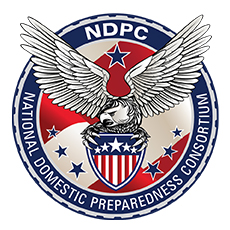New Report Details National Domestic Preparedness Consortium’s Impact on U.S.

BATON ROUGE — Fiscal year 2018 marked the 20th year since the establishment of the National Domestic Preparedness Consortium, or NDPC, which has made a substantial impact on the nation’s preparedness. Since 1998, NDPC training has benefited more than 2,942,265 participants in all 50 states and each U.S. territory. In fiscal year 2018 alone, 192,370 participants were trained.
The NDPC is a unique partnership of several nationally recognized organizations whose membership is based on the urgent need to address the counter-terrorism preparedness needs of the nation’s emergency first responders within the context of all hazards, including chemical, biological, radiological, and explosive weapons of mass destruction hazards. It is sponsored through the Department of Homeland Security/FEMA National Preparedness Directorate, and the National Emergency Response and Recovery Training Center at the Texas A&M Engineering Extension Service (TEEX) is a founding member.
“Today I want to emphasize the NDPC’s commitment to be relevant to and focused on the needs of our stakeholders, partners and customers,” said Al Davis, NDPC chairman and Deputy Director of TEEX. “The NDPC mantras of ‘Preparedness through Training’ and ‘Creating a Culture of Preparedness’ resonate as both worthy and relevant now more than ever.”
As the consortium strives to remain at the forefront of national preparedness efforts, it has strategically planned how to continue to improve the quality, timeliness and reach of its training. Before moving forward, however, the NDPC has looked back to take inventory of its efforts with the newly released FY2018 Annual Report. The report is available to the public on its website and by request.
This annual report reviews the NDPC’s successes in the last year, including real-world examples of how NDPC training was used during an unprecedented number of natural disasters; to provide and expand school safety training; and a multitude of new and updated courses.
The report also takes inventory of training efforts over the last decade. This allows stakeholders to visualize how the consortium expanded over the years, what its strengths are and where there are new opportunities to make an impact on the Nation’s preparedness.
“We hope you will find the information in our 2018 Annual Report valuable, our new course offerings relevant in today’s landscape and our contributions during a turbulent year a symbol of our commitment to and optimism for the future. We ask you to support our efforts to enhance a national culture of preparedness through training,” said Davis.
“With a history of success; the top subject matter experts in the country; various modes of training delivery; established infrastructure; and a recognized commitment to preparedness, the NDPC remains ready to provide the vital training necessary to meet today’s urgent security challenges and increase the resilience of our communities.”
For more information on the National Domestic Preparedness Consortium, contact [email protected] or visit www.ndpc.us.
